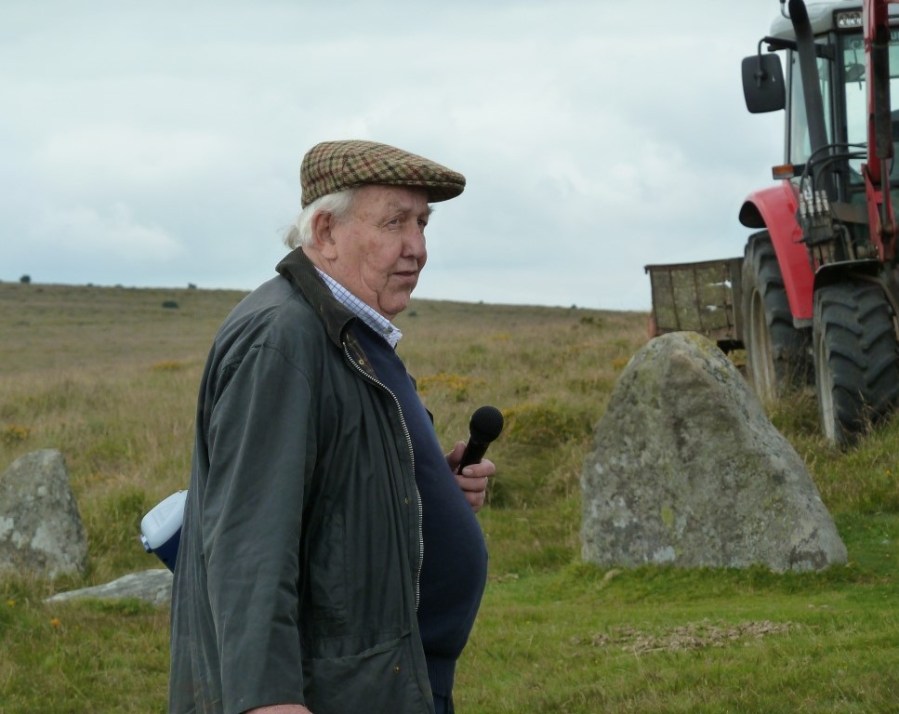Ian Mercer, the first Dartmoor National Park Officer and the first chief executive of the Welsh Government’s advisory body, the Countryside Council for Wales, has died aged 83 after a long illness
He was also the first warden of Slapton Ley Field Centre, the first county (Devon) conservation officer in England and Wales, and the first secretary general of the Association of National Park Authorities.
Ian with his first wife Valerie established Slapton Ley Field Centre on the south Devon coast in 1959 and Ian was a founder member of the Devon Wildlife Trust (then the Devon Trust for Nature Conservation). He was the catalyst for the creation of the Woodland Trust: when the late Ken Watkins of Ivybridge in Devon kept urging the DTNC to buy woodlands to save them, Ian told him to set up his own trust. Ken formed the Woodland Trust in 1972 and it quickly grew into an influential national body.
During his time as Dartmoor National Park Officer (1973-90), Ian won the trust of Dartmoor’s farmers and common-right holders, and pioneered the Dartmoor Commons Act 1985 which became a precedent for national legislation. This established a statutory commoners’ council combined with a public right to walk and ride on Dartmoor. It was a great accolade when, in 2004, Ian was invited to become the chairman of the Dartmoor Commoners’ Council.
In 1990 Ian went to Wales as the chief executive of the newly-formed Countryside Council for Wales, the first GB government body to bring together the disciplines of landscape, recreation and nature conservation. Here he invented the ground-breaking Tir Cymen, the forerunner of the current Glastiragri-environment scheme, whereby farmers and landowners were paid to manage their land for the benefit of the environment and public enjoyment.
He held numerous other offices: president of the Field Studies Council and of the Devon Wildlife Trust, vice-president of the Campaign for National Parks, chairman of the South West Uplands Federation to name a few; he chaired the Devon Foot and Mouth Inquiry in 2001 and the inquiry into the aftermath of the beaching of MSC Napoli in 2008. He wrote the second edition of the New NaturalistDartmoor (2009), a 400-page book of great scholarship.
He was made a CBE for ‘services to the environment in Wales’. In 1991 he was appointed honorary Professor of Rural Conservation Practice at the University of Wales and a Fellow of the Royal Agricultural Society.
Ian was born on 25 January 1933 in Wombourn, Staffordshire. He studied geography at Birmingham University and always considered himself first and foremost a geographer, a subject he loved deeply. He spent the last 40 years of his life at his home in Moretonhampstead where he lived with his second wife Pamela.
Says Kate Ashbrook, general secretary of the Open Spaces Society who knew Ian for more than 40 years: ‘Ian was an immense influence on a generation of nature lovers and national park enthusiasts. Although he spent much of his life in bureaucratic organisations, his love of the natural world shone through and he inspired others to follow in his footsteps. He taught people of all ages to appreciate nature and it was a treat to join him on a dawn-chorus walk; his recognition of birdsong was legendary.
‘We all have much to learn from his many achievements.’ John Waldon, chairman of the Dartmoor Commoners’ Council says: ‘for nearly ten years Ian chaired the Dartmoor Commoners’ Council demonstrating his empathy for the local farming community and ensuring fair play at all times. He will not be forgotten by the farmers on Dartmoor; he was a hard act to follow’. Says John Lloyd Jones, former chairman of the Countryside Council for Wales (CCW): ‘Ian was a huge man in many senses. He had an acute understanding of how Wales’s rural society worked and a deep commitment to its continuation and development.
‘Ian passionately believed in the importance of natural beauty and the inherent goodness of land managers, if properly understood and motivated. He was inordinately pleased of his Fellowship of the Royal Agricultural Society which he received in Wales. Rural society will be the poorer for his passing.’







